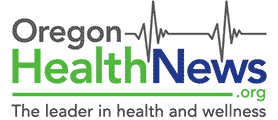Federal health officials awarded $67 million in grants Thursday to more than 100 organizations around the country to help uninsured consumers sign up for health coverage in new insurance marketplaces this fall.

The long anticipated grants — $13 million more than expected — will be used to hire special guides, or “navigators,” who can give individuals face-to-face assistance in shopping for health plans under the federal health-care law, often known as Obamacare.
Consumer outreach and assistance are considered keys to the success of the Affordable Care Act. Many uninsured Americans don’t know about the marketplaces or have little idea how they would work, polls show.
Complicating the enrollment process are the huge gaps in resources and readiness between the 17 states and the District that are running their own marketplaces and the 34 states that resisted and are being run or partly run by the federal government. The health-care law set aside much more money for states operating their own marketplaces.
Administration officials touted the grants as progress toward implementing the health law, which has run into several delays in recent months.
In February, the administration said it was giving some insurers and employers until 2015 to cap the amount consumers can be charged through deductibles, co-payments and co-insurance.
In July, the administration postponed until 2015 a mandate that all employers with more than 50 employees provide coverage to their workers.
In announcing the grants, Health and Human Services Secretary Kathleen Sebelius said the marketplaces and consumer assistance were on track for enrollment beginning Oct. 1 for coverage effective in January.
“We know we have a lot of work to do, but we’ll be ready for whatever comes up,” she said in a conference call with reporters.
Under the health law, all states must set up Web sites where people can compare and shop for health insurance coverage. People will also be able to find out whether they qualify for subsidies to reduce their costs or whether they are eligible for Medicaid, the state-federal program for the poor.
Republicans have raised privacy concerns about the access that navigators would have to personal information from people seeking to buy insurance.
Thirteen Republican state attorneys general sent a letter to Sebelius on Wednesday questioning whether there will be enough protection of consumer data in the navigator program.
Sebelius said that navigators will be required to adhere to strict security and privacy standards, including how to safeguard a consumer’s personal information. They will be required to complete 20 to 30 hours of training to be certified and take additional training throughout the year. Training will begin this month.
The exact number of navigators to be hired will be made by the individual organizations receiving grants. They include universities, health departments and health systems, including Ascencion Health, the country’s largest Catholic and nonprofit health system. Planned Parenthood affiliates in Iowa, Montana and New Hampshire also received grants totalling $655,000.
The extra $13 million comes from funds previously set aside for outreach and does not represent new money, officials said.
Federal health officials made the awards based on the numbers of uninsured in each state. States with the largest numbers of uninsured received significantly more funding than earlier projections.
Florida received $7.8 million in grants, more than $2 million more than earlier forecasts. Texas group are receiving nearly $11 million, $2.7 million more than previous estimates.
Other states that received larger grants were Georgia, Illinois, Michigan, Ohio and Pennsylvania. Two states received a smaller total than previous estimates: Maine and South Carolina.
Virginia, the only jurisdiction in the metro Washington region that is defaulting to the federal government to run its marketplace, is receiving about $1.7 million, about $350,000 more than an earlier estimate. One of the recipients is the Virginia Poverty Law Center, which is receiving nearly $1.3 million to hire about 16 navigators across the state.
By contrast, Maryland, which has roughly the same number of uninsured residents, has $24 million to hire 175 navigators and an additional 150 helpers.
The District is awarding $6.4 million to 35 community organizations to hire guides to provide in-person help. The federal government is also enlisting businesses and organizations such as the American Medical Association, the NAACP and the League of United Latin American Citizens to help with outreach.
Source: Lena H. Sun, Washington Post
